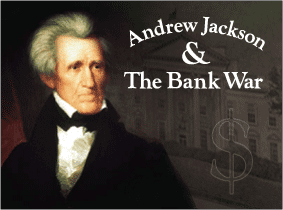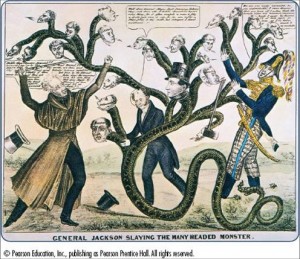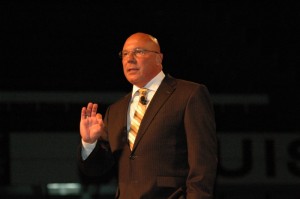Here is an excellent short history of the Magna Carta, one of the first building blocks of English speaking freedoms, from the Constitutional Rights Foundation. In fact, several of the points from the Magna Carta were carried forward into the United States Constitution, as well as each of the commonwealth nations of the former English Empire. The key to the document was the agreement for the nobles to check the king’s actions, ensuring the protection of the subjects against tyranny. Although the original Magan Carta agreement didn’t last long, many of the principles themselves have withstood the test of time.
The goal of the LIFE community and the Mental Fitness Challenge is to reteach the principles of freedom and following, along with the other six F’s into communities of learners. The only way to ensure freedom is to ensure knowledge, since a person is only as free as what he or she knows. Enjoy the article.
Sincerely,
Orrin Woodward
Meeting at Runnymede
The Story of King John and Magna Carta
Myth and history are intertwined in the England of 800 years ago. We all remember the outlaw, Robin Hood. From his hideout in Sherwood Forest, he and his band of Merry Men preyed on the rich and gave to the poor. Their archenemy was the Sheriff of Nottingham, who took his orders from the sinister Prince John. While Robin Hood never existed, John certainly did. He was the central character in a real life drama that led to a milestone in human liberty: Magna Carta. Prince John’s older brother, Richard, became king of England when their father, Henry II, died in 1189. King Richard I (also called Richard the Lionhearted) spent almost the entire 10 years of his reign away from England. He fought in tournaments, led crusades and waged several wars on the continent of Europe.
Since Richard needed revenue to pay for his adventures, he taxed his subjects heavily. At one point Richard was captured by his enemies and held for ransom (a common practice in feudal Europe). Richard’s tax collectors in England had to raise an enormous sum of money to free him. Despite Richard’s demands, the people back home in England loved him as a conquering hero.
When Richard died in 1199, John became King. Unlike his brother, John tended to stay at home and run his kingdom on a day to day basis. John, however, continued his brother’s harsh tax policy. Because John lacked Richard’s heroic image and charisma, his subjects began to hate him for his constant demands for more tax money.
King John vs. the Church
King John made more enemies when he refused to accept the appointment of Stephen Langton as Archbishop of Canterbury, the most important position in the English Catholic Church. By so doing, John challenged the authority of Pope Innocent III in Rome, who punished John by excommunication. John retaliated by taxing the Church in England, confiscating its lands and forcing many priests to leave their parishes.
While King John carried on his dispute with the Pope, powerful English landowners called barons conspired against him. Fuming over John’s heavy taxes and other abuses of power, the barons plotted rebellion. To head them off, King John made an unexpected move.
In 1212, King John agreed to have Stephen Langton become Archbishop of Canterbury. John also promised to compensate the Church for its money and lands. John even went so far as to make England a fief of the Pope. King John still ruled England, but, as John’s liege lord, the Pope gained tremendous prestige throughout Europe. Pope Innocent was delighted and in 1213 ended John’s excommunication. With John now under the protection of the Church, the resentful barons retreated—at least for a while.
King John vs. the Barons
Convinced that his throne was again safe, King John returned to one of his favorite projects. For years he had dreamed to retake possession of lands in France that had once belonged to his ancestors. Once before, John had led a military expedition to France. Although he won a number of battles, John failed to decisively defeat the French king. Now, in 1213, John planned another campaign.
An invasion of France required many soldiers and more money. Under feudal law, a liege lord had the right to call upon his vassals to provide knights or money during times of war. From the English barons, all vassals of King John, he demanded men-at-arms or gold to support his new French war. Many of the barons refused, having little interest in John’s quarrel with the French king. Enraged, King John set out to punish them by attacking their castles.
Early in 1214, he abandoned his domestic quarrels and left with a force of loyal barons and mercenaries (paid soldiers) for France. History repeated itself. John succeeded in winning some battles, but failed to gain control of the disputed lands.
The Road to Runnymede
Soon after returning to English soil in October 1214, King John resumed his demand for money from the rebellious barons. His demands fell on deaf ears. Sensing John’s weakness after his failure in France, the barons began to make their own demands. In January 1215, a group of them appeared before King John asking for a written charter from him confirming ancient liberties granted by earlier kings of England. Evidence suggests that the newly appointed Archbishop Stephen Langton may have encouraged these demands.
John decided to stall for time; he would give the barons an answer later in the spring. In the meantime, John sent letters to enlist the support of Pope Innocent III, and also began to assemble a mercenary army.
In April, the barons presented John with more specific demands. John flatly rejected them. He remarked: “Why do not the barons, with these unjust exactions, ask my kingdom?”
In response, the barons withdrew their allegiance to King John, and started to form their own rebel army. At the head of the rebel forces was Robert FitzWalter, who called himself “Marshal of the army of God and Holy Church.” In an effort to cool things off, John proposed that the Pope settle their differences. With the Pope openly siding with King John, the barons refused. John ordered his sheriffs to crush the rebel barons and they retaliated by occupying London.
A stalemate ensued. The 40 or so rebel barons and their forces held London as well as their own fortified castles throughout England. King John commanded a slightly smaller force of loyalist barons and mercenaries. Unaligned were about 100 barons plus a group of church leaders headed by the ever-present Archbishop Stephen Langton. Langton (who was sympathetic to the rebels if not one himself) began to work for a negotiated settlement to prevent all-out civil war and arranged a meeting to be held at Runnymede, a meadow on the Thames west of London.
Meeting at Runnymede
King John and his supporters, the rebel barons, the neutrals, church leaders and Archbishop Langton all met at Runnymede on June 15, 1215. Significantly, while most of King John’s fighting men were scattered throughout his kingdom, the rebels appeared at full military strength.
Little is known about the details of this historic meeting. We do know that King John placed his seal of approval on a document called the “Articles of the Barons.” Over the next few days these articles were rewritten, expanded, and put into the legal language of a royal charter.
At some point, probably on June 19, King John put his seal on the final draft of what we call today “Magna Carta” or “The Great Charter.” In exchange, the rebellious barons renewed their oath of allegiance to King John, thus ending the immediate threat of civil war.
In its original form Magna Carta consisted of 63 articles or chapters. Many concerned matters of feudal law that were important to the rebel barons, but are of little relevance to us today. Other parts of Magna Carta corrected King John’s abuses of power against the barons, Church officials, merchants and other “free men” who together made up about 25% of England’s population. Magna Carta virtually ignored the remaining 75% of the population.
For people today the most significant part of Magna Carta is Chapter 39:
No free man shall be arrested or imprisoned or disseised [property taken] or outlawed or exiled or in any way victimized, neither will we attack him or send anyone to attack him, except by the lawful judgment of his peers or by the law of the land.
Some have interpreted this provision to mean that Magna Carta guaranteed to free men the right to a trial by jury. However, the idea of a jury trial as we would recognize it today had not yet developed by 1215.
The purpose of this chapter was to prevent King John from personally ordering the arrest and punishment of a free man without lawful judgment. According to Magna Carta, “lawful judgment” could only be made by judges ruled by “the law of the land,” or by one’s peers in a trial by combat.
Magna Carta of 1215 was not really intended to be a list of rights for Englishmen or even the barons themselves. It was more like a contract in which John bound himself to abide by its provisions. The barons only wanted King John to satisfy their complaints against his abusive rule, not overthrow the monarchy. The real significance of this document lies in the basic idea that a ruler, just like everyone else, is subject to the rule of law. When King John agreed to Magna Carta, he admitted that the law was above the king’s will, a revolutionary idea in 1215.
Aftermath
King John surrendered significant power when he agreed to Magna Carta. It is doubtful that he really ever intended to live up to all his promises. While John did satisfy some of the barons’ personal grievances, he secretly wrote the Pope asking him to cancel Magna Carta on the grounds that he signed it against his will. At the same time he continued to build up his mercenary army. Not trusting John’s intentions, the rebel barons held on to London and maintained their own army.
Pope Innocent III replied favorably to King John’s appeal. He condemned Magna Carta and declared it null and void. By September 1215, King John and his army were roving the countryside attacking the castles of individual barons, but he avoided the rebel stronghold of London. The barons charged that King John had defaulted on his agreement with them and they were justified in removing him from the throne. They offered the throne to the son of the French king, if he would aid their rebellion.
A long and bloody civil war loomed across England, when suddenly, King John died. A round of heavy eating and drinking apparently led to a case of dysentery causing his death on October 18, 1216. Ten days later John’s nine-year-old son, Henry, was crowned as the new king of England. With John out of the way, the conflict gradually ceased. Less than a month after Henry was crowned, his supporters confirmed Magna Carta in his name. This time it received the approval of the Pope.
Magna Carta, carrying with it the idea of “the rule of law,” was reconfirmed a number of times over the next 80 years, becoming a foundation of English law. Eventually, Magna Carta would become the source of important legal concepts found in our American Constitution and Bill of Rights. Among these are the principle of no taxation without representation and the right to a fair trial under law. These foundations of our own constitutional system had their beginnings in a meadow beside a river almost 800 years ago.










